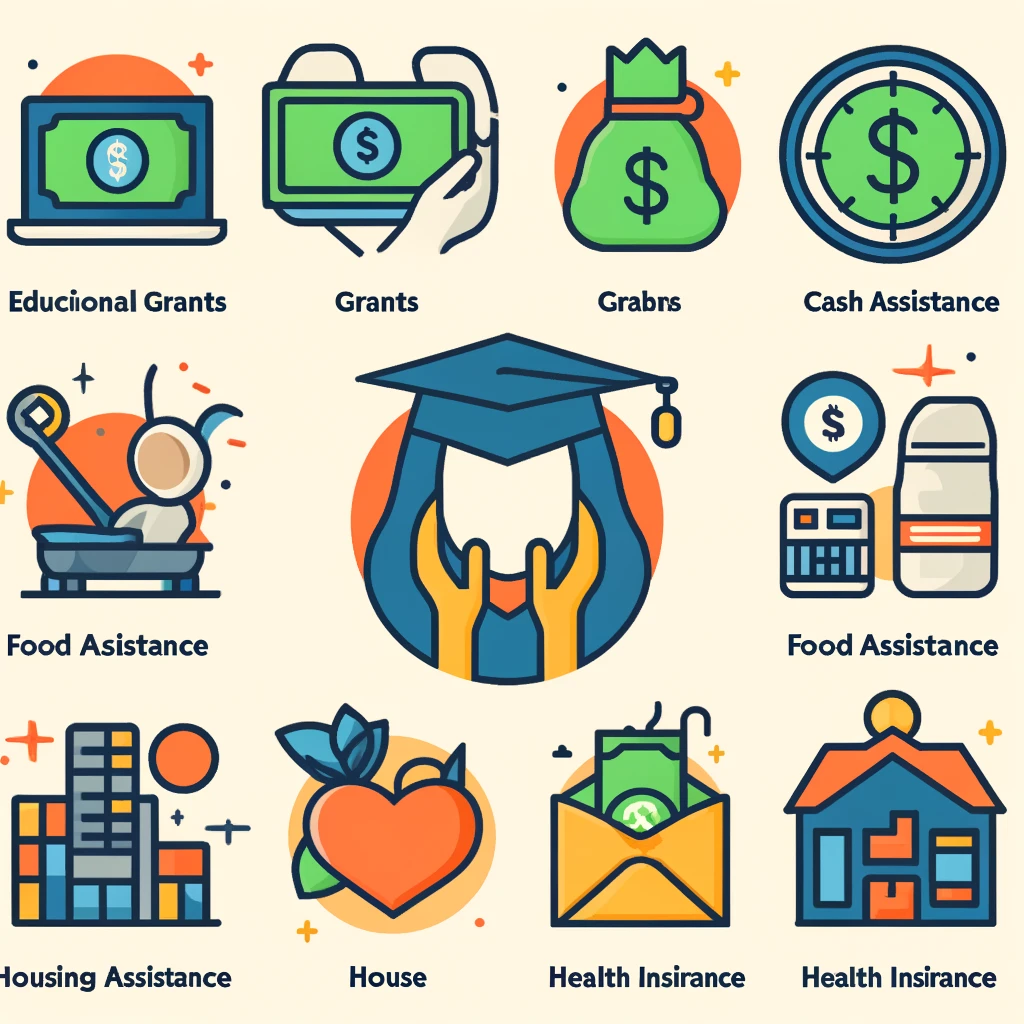On This Page
Guide to Grants for Single Mothers: Your Path to Financial Assistance
Single mothers face unique financial challenges, but various grants and assistance programs can provide essential support. This guide covers everything you need to know about grants for single mothers, from education funding to housing and nutritional aid.
Education Grants for Single Mothers
Federal Pell Grant
The Federal Pell Grant is a need-based grant that assists low-income students, including many single mothers, to pay for college. Starting in the 2025-25 award year, a new formula called the Student Aid Index (SAI) will determine Pell Grant eligibility, making it easier for many to qualify.
- Award Amount: $750 to $7,395 for the 2023-24 academic year.
- Application: Complete the Free Application for Federal Student Aid (FAFSA) by June 30 each year.
Federal Supplemental Educational Opportunity Grant (FSEOG)
The FSEOG provides additional financial aid to students with the utmost need. Priority is given to Pell Grant recipients with the lowest Expected Family Contribution (EFC).
- Award Amount: $100 to $4,000 annually.
- Application: Complete the FAFSA.
Federal Work-Study Grant
This program offers part-time jobs for students with financial need, allowing them to earn money for educational expenses.
- Work Hours: Up to 20 hours per week.
- Application: Complete the FAFSA and indicate interest in work-study.
Federal Student Loans
Federal student loans are available for single mothers needing more financial assistance beyond grants.
- Interest Rates:
- Undergraduate Subsidized/Unsubsidized: 5.50%
- Graduate Unsubsidized: 7.05%
- Direct PLUS Loan: 8.05%
- Application: Complete the FAFSA and indicate interest in student loans.
Financial Assistance Programs
Temporary Assistance for Needy Families (TANF)
TANF provides cash assistance to low-income families to help achieve self-sufficiency. Benefits vary by state and are available for up to 60 months.
- Application: Contact your local TANF office.
Diversion Cash Assistance (DCA)
DCA offers one-time emergency cash payments to single mothers facing urgent financial crises.
- Application: Contact your local TANF office.
Supplemental Nutrition Assistance Program (SNAP)
SNAP provides food assistance to low-income families through an EBT card, helping ensure access to nutritious food.
- Income Limits: Gross monthly income for a single mother of two must be below $2,693.
- Application: Submit an application to your local SNAP office.
Women, Infants, and Children Program (WIC)
WIC offers nutrition assistance to pregnant women, new mothers, and young children at nutritional risk.
- Income Limits: Less than or equal to 185% of the poverty level.
- Application: Contact your local WIC office.
Child Care Assistance Program (CCAP)
CCAP helps low-income families pay for child care while they work or attend school.
- Application: Contact your state’s child care assistance program.
Medicaid
Medicaid provides health insurance to low-income individuals, including many single mothers.
- Income Limits: Varies by state; generally below 138% of the federal poverty level.
- Application: Apply through your state’s Medicaid office.
Housing Assistance
Section 8 Rental Subsidy
Section 8 helps low-income families afford rental housing by covering a portion of the rent.
- Application: Contact your local Public Housing Agency (PHA).
Public Housing Program
This program provides affordable housing for low-income families, with tenants paying no more than 30% of their income for rent and utilities.
- Application: Apply through your local housing authority.
Utility Assistance
Low Income Home Energy Assistance Program (LIHEAP)
LIHEAP helps low-income households pay their heating and cooling bills.
- Application: Contact your local LIHEAP office.
Low Income Household Water Assistance Program (LIHWAP)
LIHWAP offers financial relief for water and wastewater bills to low-income families.
- Application: Contact your local LIHWAP office.
Weatherization Assistance Program (WAP)
WAP helps reduce energy costs for low-income families by improving home energy efficiency.
- Application: Contact your local WAP office.
Additional Support Programs
Earned Income Tax Credit (EITC)
EITC provides a tax benefit for low- to moderate-income working parents.
- Income Limits: Up to $63,698 for families with three or more children.
- Application: File your federal tax return and claim the EITC.
Lifeline Program
Lifeline offers a subsidy for phone or broadband internet services to low-income households.
- Application: Apply through a participating provider or state agency.
Affordable Connectivity Program (ACP)
ACP provides discounts on broadband services and connected devices for eligible low-income households.
- Application: Apply at GetInternet.gov.
Local Food Banks
Local food banks provide food assistance to families in need.
- Application: Dial 2-1-1 to locate a food bank near you.

